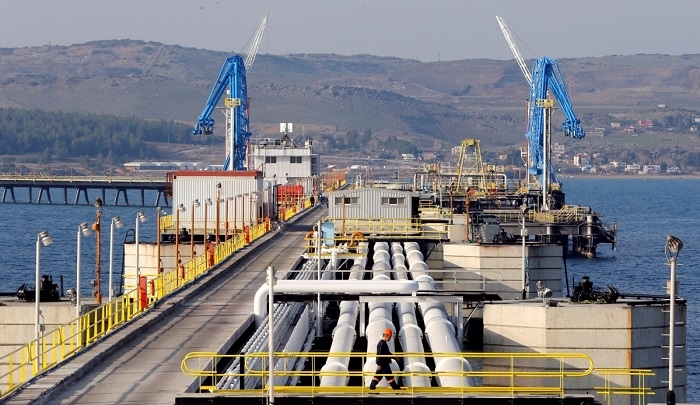Kurdistan Region's Crude Oil Exports Set to Resume via Turkey's Ceyhan Port After Six-Month Hiatus

In a significant development, crude oil exports from the Kurdistan Region are set to resume through Turkey's Ceyhan Port in the near future, marking a crucial step towards resolving a six-month-long hiatus in oil flows. According to sources close to the matter, this resumption will commence as a test trial in its initial phase.
A delegation comprising representatives from Iraq's oil marketing company, SOMO, Iraq's Ministry of Oil, and Kurdistan Region's Ministry of Natural Resources recently visited Turkey. Their mission was to advocate for the expeditious reinstatement of oil exports from Kurdistan. Kurdistan 24 reported these deliberations, citing sources from SOMO.
Further corroborating this positive development, the Iraq Oil Report website confirmed on Saturday that these meetings indeed took place. The report noted substantial progress during these trilateral discussions and observed a renewed momentum in negotiations to reopen the crucial Iraq-Turkey oil export pipeline.
The Iraq Oil Report elaborated: "Officials from Iraq’s state oil marketing company (SOMO), the Kurdistan Regional Government (KRG), and the Turkish state pipeline company BOTAS have held a series of meetings in recent days in Turkey and Erbil to discuss technical and commercial issues related to bringing the pipeline back online after a six-month outage."
Last week, Turkish Energy Minister Alparslan Bayraktar officially announced that Turkey's Ceyhan Port is preparing to receive crude oil exports from the Kurdistan Region once more. This announcement follows the completion of maintenance work on the Kurdistan-Turkey pipeline, signaling the imminent resumption of crucial oil flows.
The urgency of reopening this vital energy artery has also garnered international attention, with the White House stressing the importance of restoring Kurdistan Region's crude exports. The halt in oil exports has had a considerable impact on the country's overall revenues.
The interruption in oil exports began on March 25th of this year when Turkey suspended the oil export route from the Kurdistan Region in response to an arbitration ruling by the France-based International Chamber of Commerce (ICC). This ruling mandated that Ankara compensate Baghdad for "unauthorized oil exports" originating from the Kurdistan Region between 2014 and 2018.
Before the court's verdict, the Kurdistan Region was exporting approximately 450,000 barrels of oil per day, constituting a noteworthy 0.5 percent of global oil production. The suspension of these exports had a ripple effect, contributing to a surge in global oil prices. Consequently, following the court's decision, oil companies operating in the Kurdistan Region either halted production or reduced output, diverting oil to storage facilities.
As negotiations progress and the test trial phase nears, stakeholders are optimistic that the resumption of crude oil exports from the Kurdistan Region through the Iraq-Turkey pipeline will not only bolster regional stability but also have far-reaching implications on the global oil market. The imminent restart of this vital economic lifeline is eagerly anticipated by all parties involved.












